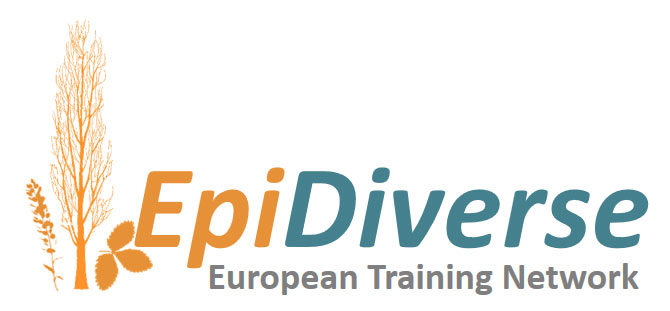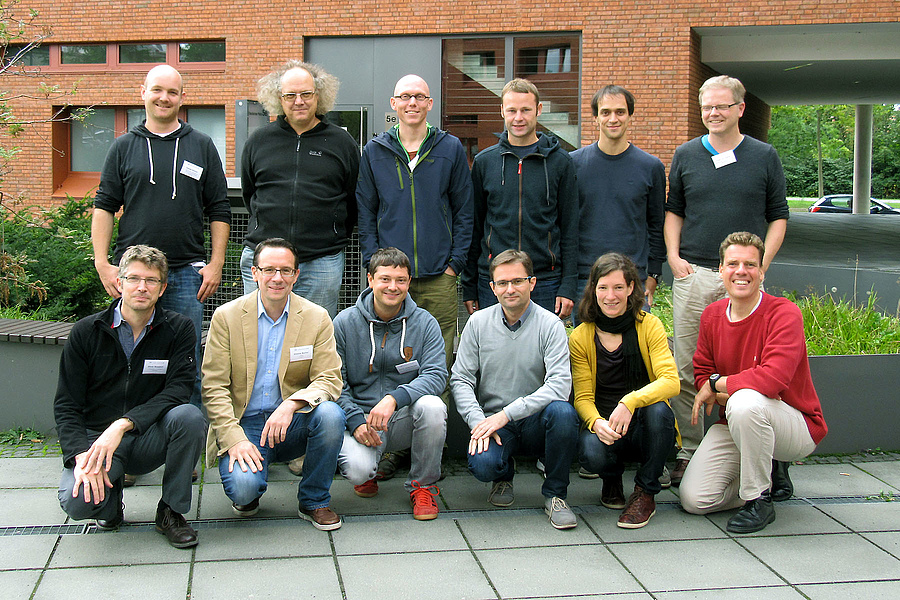Open PhD Position
Posted on October 18, 2017

Inferring genomic information from bisulfite sequencing data
- PhD Supervisor(s): Dr. David Langenberger, Prof. Dr. Peter F. Stadler
- Host Institution: ecSeq Bioinformatics GmbH
in collaboration with the Chair for Bioinformatics University Leipzig - Duration: 36 months
- Fixed start date: 1 April 2018
- Planned secondment(s): Gregor Mendel Institute of Molecular Plant Biology (Vienna, Austria), IGA Technology Services SRL (Udine, Italy) and Roche Diagnostics GmbH (Mannheim, Germany)
Background
DNA methylation variants can arise spontaneously, they can be under genetic control or they can be induced by the environment. In plants, some DNA methylation variants are stable across many generations whereas other variants are very transient. A good understanding of the transgenerational dynamics of DNA methylation variants is essential to understand their impact on heritable traits and their effect on adaptation. Current insight in the transgenerational dynamics of DNA methylation is limited to very few model plant species, but it is predicted that these dynamics are not constant among different plants. For instance, plant reproduction mode can have a large effect because asexual reproduction bypasses some of the epigenetic resetting mechanisms that normally occur during sexual reproduction. Adaptive differences in transgenerational stability may also differ between species with different life spans or from habitats of different environmental predictability.
Your PhD Project
In this project, we aim to investigate differences in DNA methylation dynamics between species with different life history traits. In close collaboration with other bioinformaticians and biologists, a best-practice pipeline for the analysis of plant bisulfite data will be developed, benchmarked, and provided to be applied to the Next-Generation Sequencing (NGS) data generated in the frame of different EpiDiverse projects. In addition, novel algorithms will be devised and implemented to better detect DNA methylation variants and search for important methylation haplotypes to better understand the epigenetic regulation. The special constellation of working at a bioinformatics company in very strong cooperation with the chair of bioinformatics at the university offers the unique possibility of gaining benefits from both: The clearly structured style of the work in a company will help implementing novel ideas from academia in the light of recent publications, resulting in a strong focus and high productivity.
Your Qualifications
We seek a bright, highly motivated, and enthusiastic bioinformatician, or computer scientist with significant interest in solving biologically motivated questions. Excellent programming skills with knowledge of at least one of the following programming languages are mandatory: Python, R, or C/C++/C#. A strong background in Next-Generation Sequencing (NGS) and/or (epi)genetics data analyses are an advantage. A high standard of spoken and written English is required, as are good quantitative and analytical capabilities, excellent interpersonal and communication skills, and the ability to work independently as well as part of a team.
Eligibility criteria
A university degree in a relevant field is required. Eligibility criteria of EU H2020 ITN programmes apply: candidates must be, at the time of recruitment by the host organisation, in the first four years (full-time equivalent) of their research careers and have not yet been awarded a doctoral degree. This is measured from the date when they obtained the degree which would formally entitle them to embark on a doctorate. Eligible candidates may be of any nationality but must not, at the time of recruitment, have resided or carried out their main activity (work, studies, etc) in the country of their host organisation for more than 12 months in the 3 last years immediately prior to the reference date.
How to apply
You may apply by providing a letter of motivation, a detailed CV and contact information of up to three references, all as a single pdf file!
Send the file by email:
- to: info@epidiverse.eu
- Cc: support@ecseq.com
- Subject: EpiDiverse-Application RP-3
If you have questions, you can contact support@ecseq.com.
Keydates
- Application deadline:
24 November 2017 - Interviews: December 2017
- Starting date: 1 April 2018
About EpiDiverse
EpiDiverse - Epigenetic Diversity in Ecology - is a Marie Skłodowska-Curie Innovative Training Network aimed at the study of epigenetic variation in wild plant species. This network joins academic groups from ecology, molecular (epi)genetics and bioinformatics with life science companies to explore epigenetic mechanisms and their adaptive relevance in natural plant populations.
The cross-disciplinary research program investigates how epigenetic mechanisms, in interaction with environments and transposable elements, contribute to variation that is relevant for the adaptive capacity of plants. By applying epigenomic research tools to a selection of different wild plants (including long-lived trees, annual and asexually reproducing species) we investigate how epigenetic mechanisms as well as their ecological relevance differs between plant species. Understanding the epigenetic contribution to adaptive capacity will help to predict species responses to global warming and can open new directions for sustainable agriculture and crop breeding.
The EpiDiverse consortium will train 15 Early Stage Researchers to become expert eco-epigeneticists, equipping them with the interdisciplinary skills - molecular, (epi)genomic, ecological and bioinformatics - to successfully tackle this new research area. EpiDiverse training will emphasize empirical and informatics skills to become fluent and creative in extracting knowledge from big ‘omics data in natural contexts.
EpiDiverse is funded by the EU Horizon 2020 programme and involves 12 partners from academia, non-profit organizations and industry located in the Netherlands, Germany, France, Spain, Czech Republic, Italy and Austria.
For further Information check the official website of EpiDiverse.
